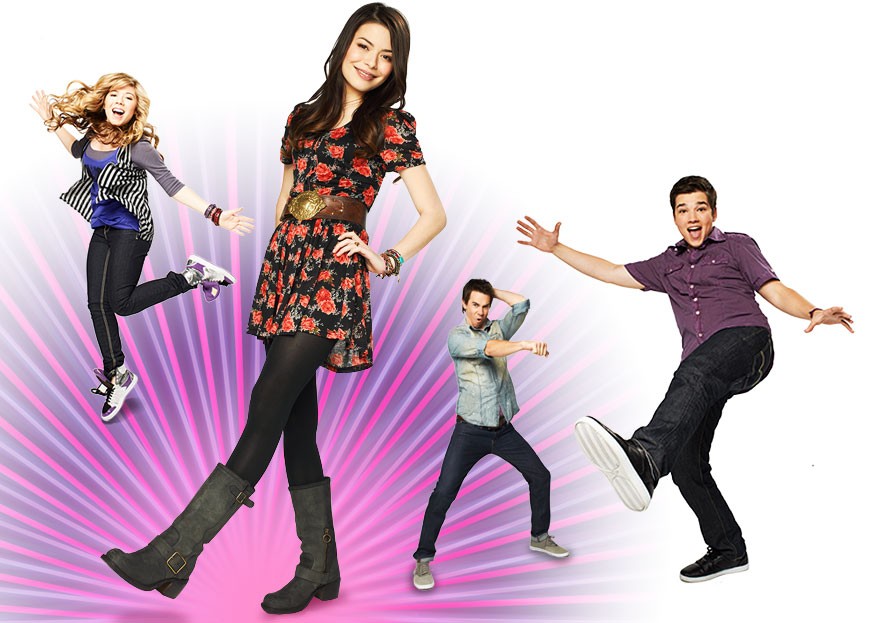The fall TV season, with all its color and splendor and ill-conceived new premises, is descending upon us. Unfortunately, I’ll be missing out on most of it, with only a few furtively DVR-ed programs caught before bedtime.
And for this, I blame Dan Schneider, White Station High School class of ‘82.
Dan did this. Maybe not all by himself, but he is a big part of the reason I can’t watch TV with my kids. And as an American, I resent having this precious TV-watching time taken away from me.

Don’t look at me like that. He knows what he did. By producing shows like Drake and Josh and iCarly, Schneider nourished the cable-for-kids phenomenon until it became an amorphous blob of blindingly-colored sets, parentless pre-teens, and merchandisable wardrobes that are all but unwatchable to anyone with a driver’s license. If you think I’m overstating his influence, please note that he was called “the Norman Lear of children’s television” in the dang New York Times. Schneider has made a nice profit on the theory that kids’ programming should be relentlessly positive and unchallenging, and while that’s not so bad in a 30-minute segment or two, he and his ilk have now taken over multiple outlets, providing non-stop shows for the 6-to-12 set that are virtually indistinguishable from the Kidz Bop CD commercials littered in between.
If it were only a few cable channels that were affected, I might be able to live with this shift. But now, thanks to the idea Schneider has promulgated that kids’ TV is an entirely separate entity, the rest of television has gone in a decidedly child-unfriendly direction. There’s really no safe zone in the evening line-up anymore. Even if I turn on something as relatively benign as Modern Family, one of the few “domestic” comedies in prime-time, there’s still a good shot I’ll be awkwardly hoping my kids don’t catch the sub-plot about a father’s panic that his daughter’s lost her virginity.
“The following program contains subject matter that may be inappropriate for some viewers. Parental discretion advised.”
If you see these words on your television today, you instantly scan the room to make sure no one under the age of 13 is about to see what’s coming, because there’s a good chance it’s a home video of a crossbow accident or a T-and-A-enhanced love scene or Louis C.K. talking about … well, anything. The standard of appropriateness has been dropped so low that if something is under it, you certainly don’t want kids crawling around down there.
But back in the innocent 1980s, a parental warning meant that this was A Very Special Episode of a normally family-friendly show, one that would spark conversation with an uncharacteristically heavy theme. In this way, everything from drug use to child abuse was broached in what were, I admit, somewhat simplistic and candy-coated ways (oh, alcoholic-uncle Tom Hanks, put down the vanilla extract!), but to a kid at the time, still came through as powerful. Just say “Dudley in the basement” to a Gen X-er and you’ll witness an involuntary shudder.
Maybe there’d even be an episode about losing one’s virginity (such as, say, the ninth season Facts of Life episode called “Natalie,” which my mental-YouTube called up without a glitch), but by handling the topic with a little gravity, young viewers were made to understand that this was an Issue, not a punchline. And it wasn’t just sit-coms crossing these lines. I swear to you that I learned about sex because I came to my mom with questions after watching an episode of Fat Albert about STDs.
I know, I know. Kids are more worldly than ever before, but I still think they deserve to be eased into some topics. The complete dichotomy between the squeaky-clean worlds of tween fantasy and the overtly adult content of mainstream networks is jarring. The irony is that Dan Schneider’s career started on a show like Head of the Class, one of the last youth-ensemble sit-coms that wasn’t intended for a youth-only audience, one where the lead adult was a fully-formed character and not just a blundering comic foil. A show about gifted kids who saw both sides of the “being different” coin, not just the one with EVERYBODY LOOK AT ME AND MY FABULOUS HAIR engraved on it.
Being a kid isn’t easy. It’s weird and confusing. Television should be an escape, of course, but it has the potential to be a guide, too. Not just for kids, but for adults trying to figure out how to have some of those hard conversations. Or, in some cases, any conversations at all. Kid-friendly TV shouldn’t replace parents, so it sure would be nice if it didn’t repel them from the room, either.